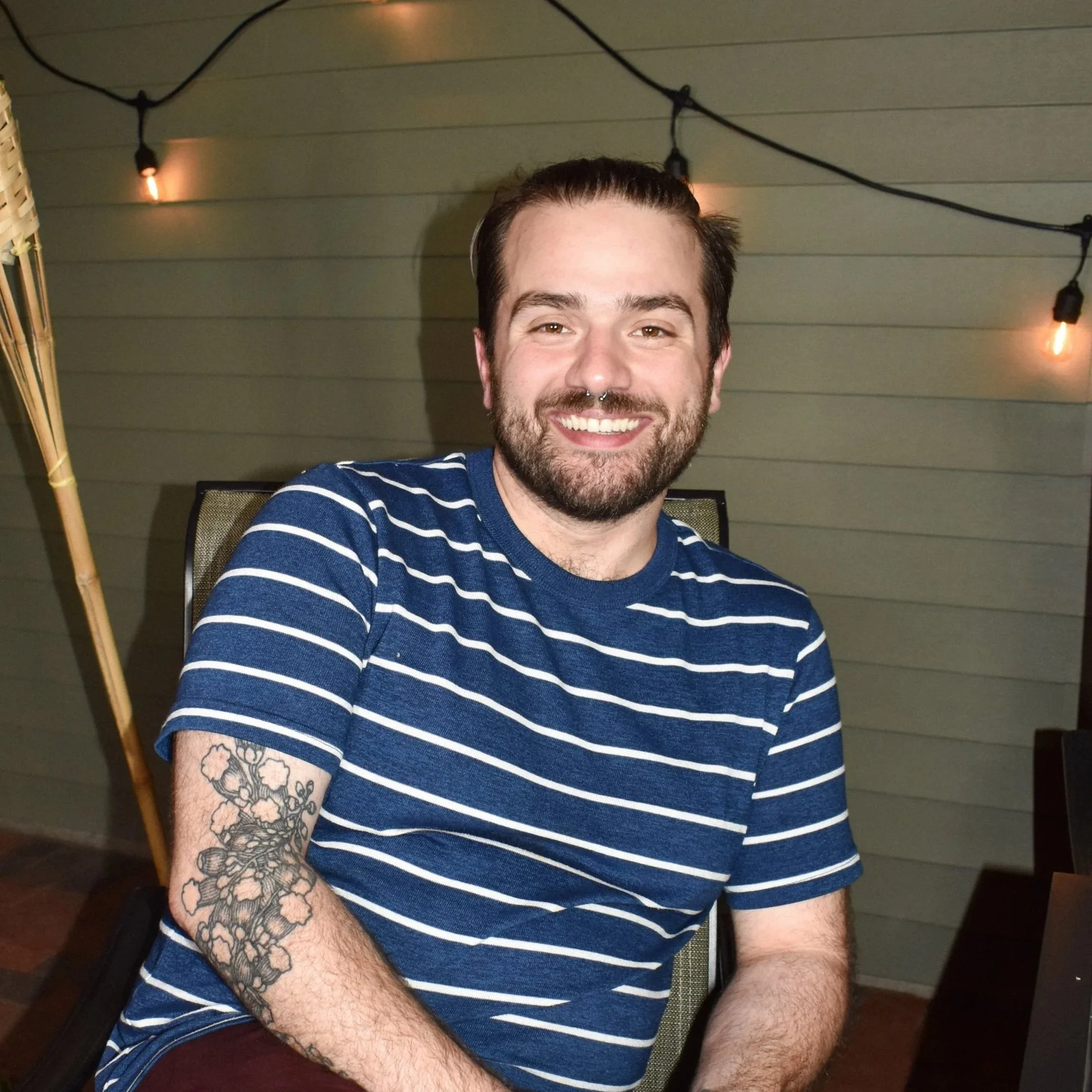Nathan Dale Short
Director
Nathan Dale Short (they/them) is a Chicago-based theatre-maker, director, and co-founder of A Short Leap Theatre Company, where they serve as Artistic Director of Literature — which basically means they read too many plays and convince everyone else they’re brilliant. Their directing work includes A Short Leap’s inaugural production, Clearing by Beth Hyland; The Rocky Horror Show, God of Carnage, Other Desert Cities, The Realistic Joneses, and Pirandello’s Six Characters in Search of an Author. They’ve also directed too many ten-minute plays and stand readings to count.
Nathan builds theatre that’s sweaty, intimate, and a little dangerous — the kind that makes you laugh in the middle of something you probably shouldn’t. Their work lives in that tension: comedy that comes at a cost. They’re drawn to contradiction — faith and failure, humor and harm, the messy humanity in our best intentions. They aim to make work that leaves audiences seen, unsettled, and strangely grateful for both; the kind of laughter that catches in your throat because it’s too true not to hurt a little.
Before co-founding A Short Leap, Nathan founded Sunrise Theatre Company in Topeka, where they helped lead two completely sold-out seasons of new and contemporary work. They’ve spent nearly a decade acting, producing, and occasionally sprinting away from collapsing set pieces across the Midwest. Favorite credits include a little of everything — absurd comedies, messy dramas, and the kind of shows that make audiences whisper “that was an experience that felt too real.”
They’re currently curating Short Leap’s upcoming season(s), building a home for bold new voices and beautifully broken stories — the kind that remind us we’re all just trying to survive each other, one act at a time. They believe the best theatre doesn’t hand you answers — it hands you a mirror. They make it to remind people that empathy and discomfort aren’t opposites — they’re scene partners. They can usually be found clutching an iced coffee and a metaphor, trying to make chaos look intentional, and they’re still waiting for the day someone says, “Hey, that was too much,” and means it as a compliment.

